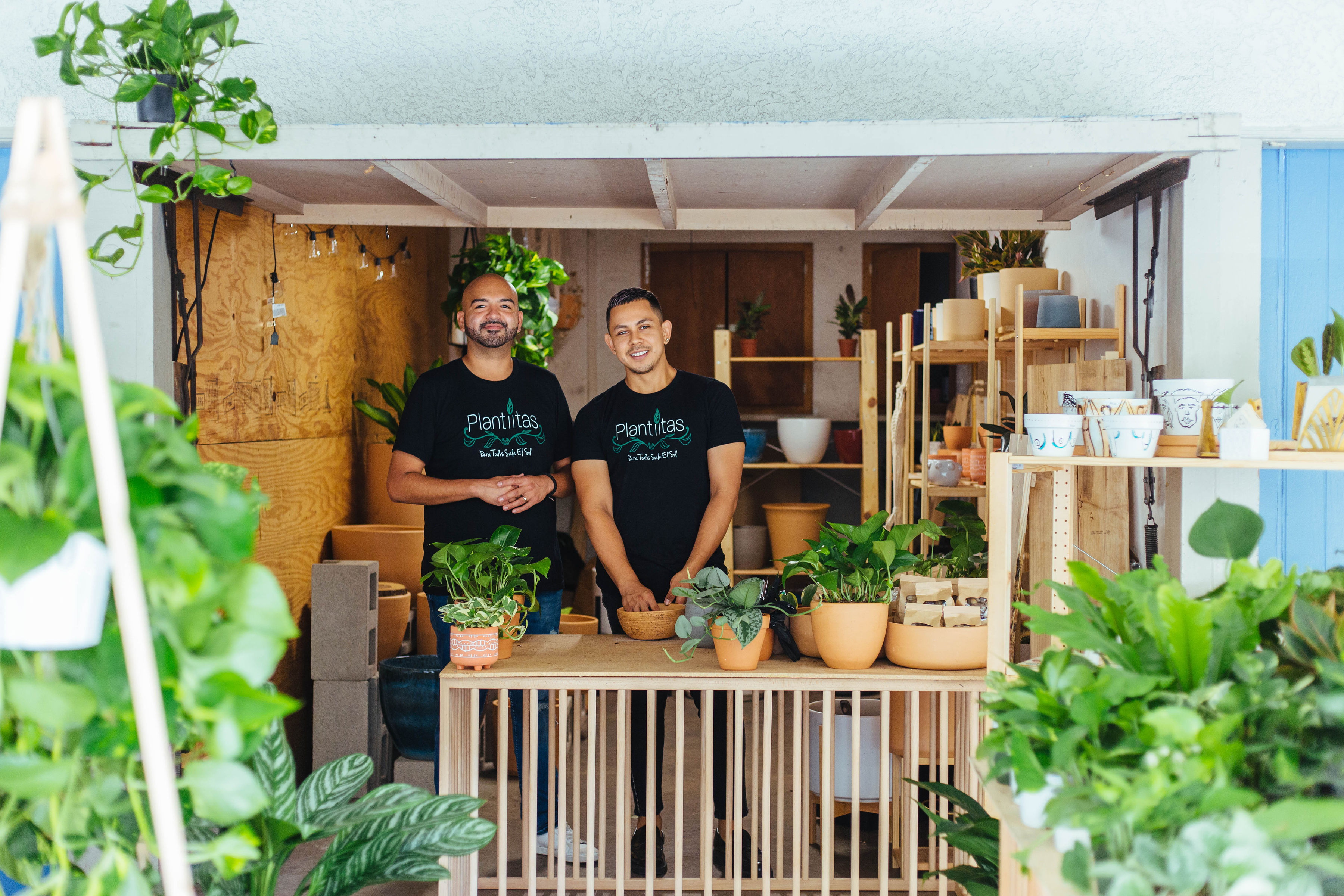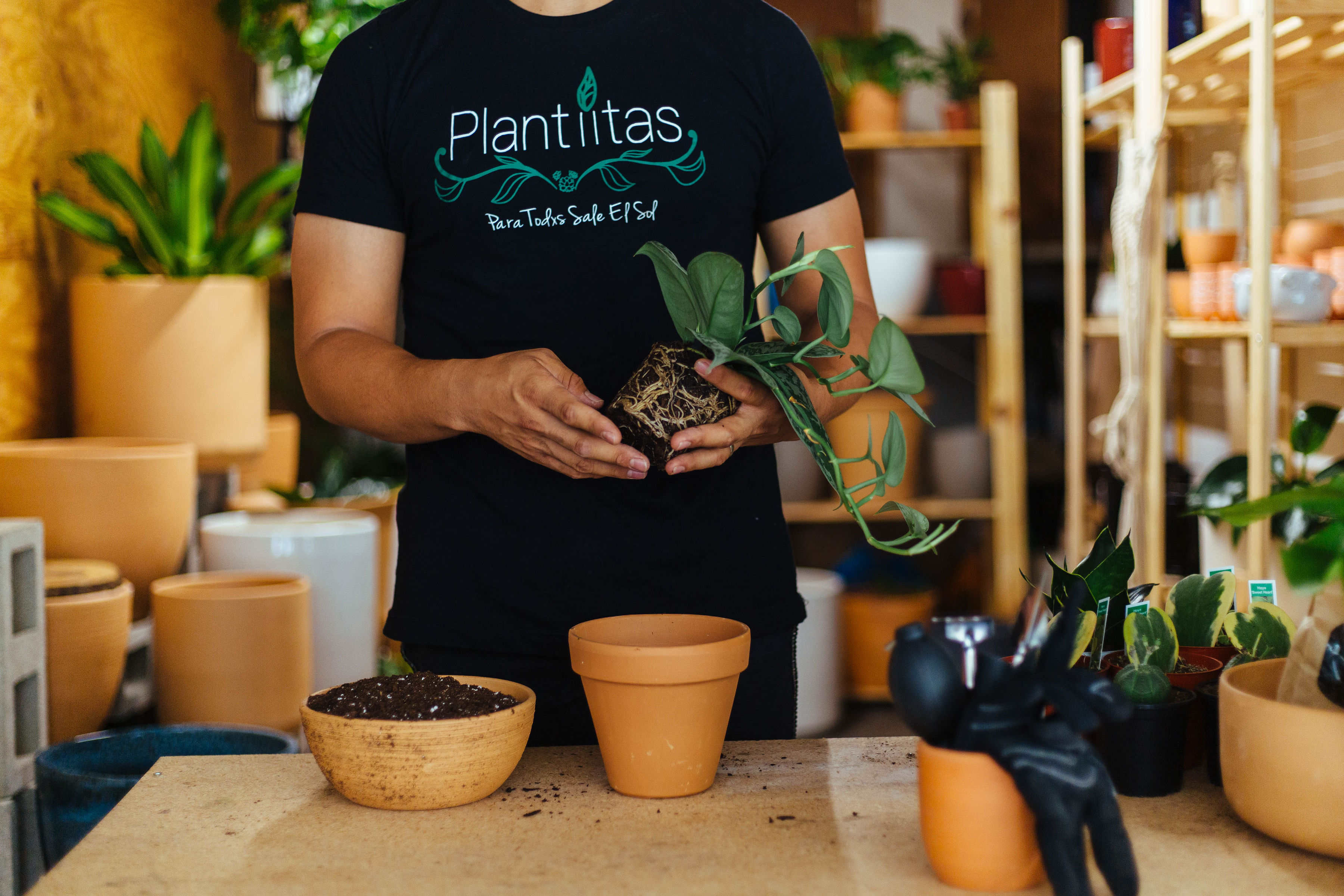Anthony Diaz, 31, and Kevin Alcaraz, 27, are the queer Mexican couple behind Plantiitas. The two use the plant-centric Instagram account to showcase the houseplants and custom hangers they sell out of Long Beach, Calif. They first posted in July and have quickly accumulated more than 2k followers—a number that’s growing in proportion to the expansion of their small business.
It all started in April when Alcaraz made a macrame hanger for one of their plants at the start of the pandemic. They posted a photo on Facebook and he got a request from someone to make them one. As more requests began to come in, Alcaraz created the Instagram account to showcase his work.
“When deciding the name, I wanted to incorporate different pieces of me. I have a close relationship with my grandmother who lives in Mexico and whom I call mi ‘ta.’ I added that to Plantiitas, and the ‘i’s is a representation of my hubby and I,” Alcaraz tells Remezcla.
“Our motto or phrase with Plantiitas is ‘Para Todxs Sale El Sol’, which comes from the frase ‘Para todos sale el sol, por más tarde que amanezca,’ meaning that there will be enough for everyone and it will come in time,” Diaz shared. “We can uplift each other more as a community and all thrive together while doing our own thang.”
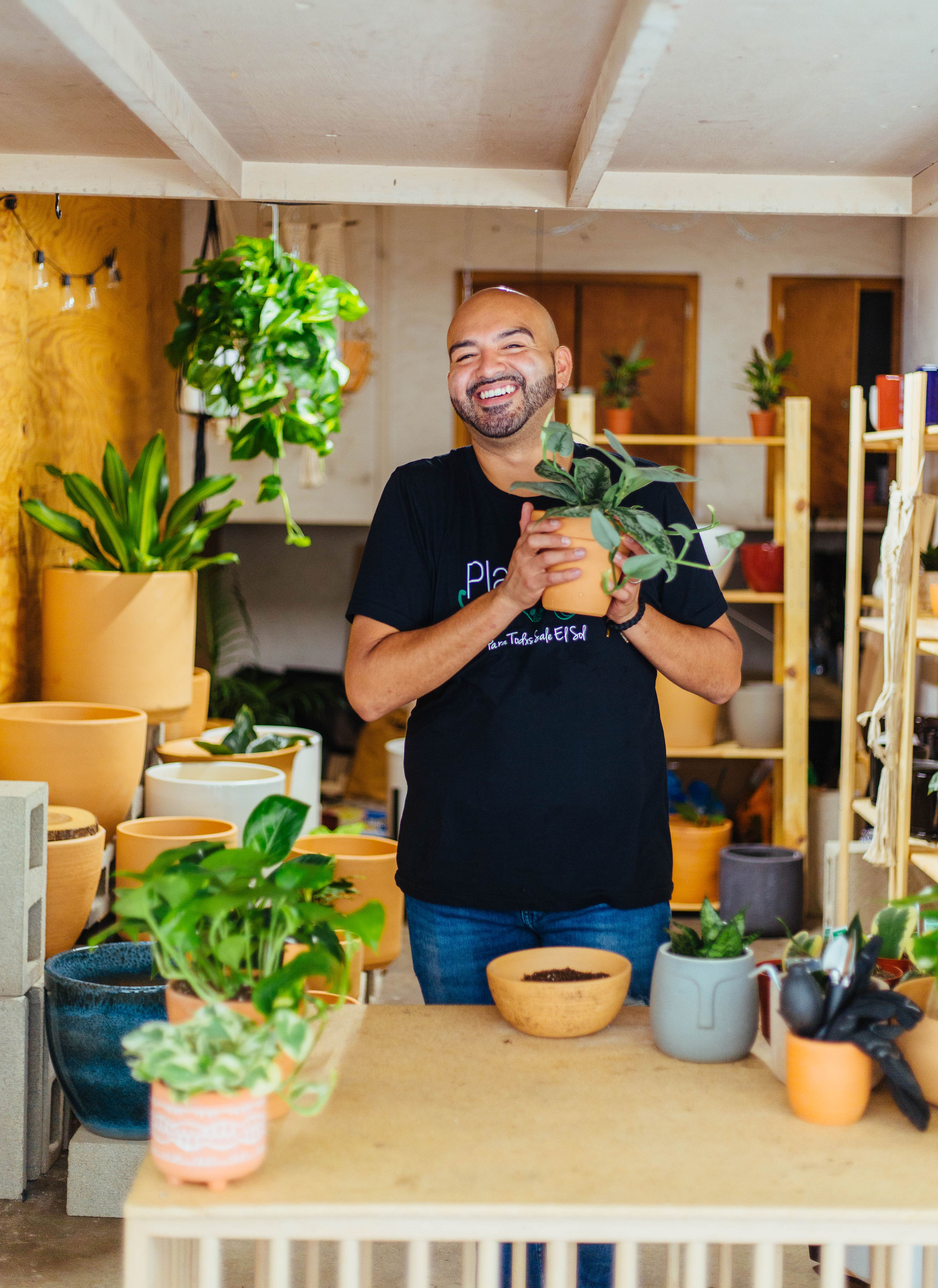
For the duo—who have been together for six years—Plantiitas is a blooming labor of love that they devote time to in addition to their other full-time jobs. Diaz is the founder and operator of Interpret That, Inc., a queer, Latinx American Sign Language (ASL)interpreting service, and Alcaraz is a freelance makeup artist. As interest in their plants grew on social media, they started inviting people to their home on weekends for a pop-up shop they set up out of their garage. Alcaraz and Diaz plan to open a storefront in Long Beach next month though they are experiencing financial barriers and say Venmo donations help.
In addition to the shop, they plan to host their first webinar on plant transplanting 101/benefits of nursing plants tentatively set for the second weekend in October. The webinar will be led by deaf Latino therapist Dr. Tomas Garcia. Attendees are encouraged to name the plants after themselves and there will be a followup event where they can discuss their health. The intent is to encourage people—especially people of color—to get comfortable speaking on mental health as there’s often still a stigma around it.
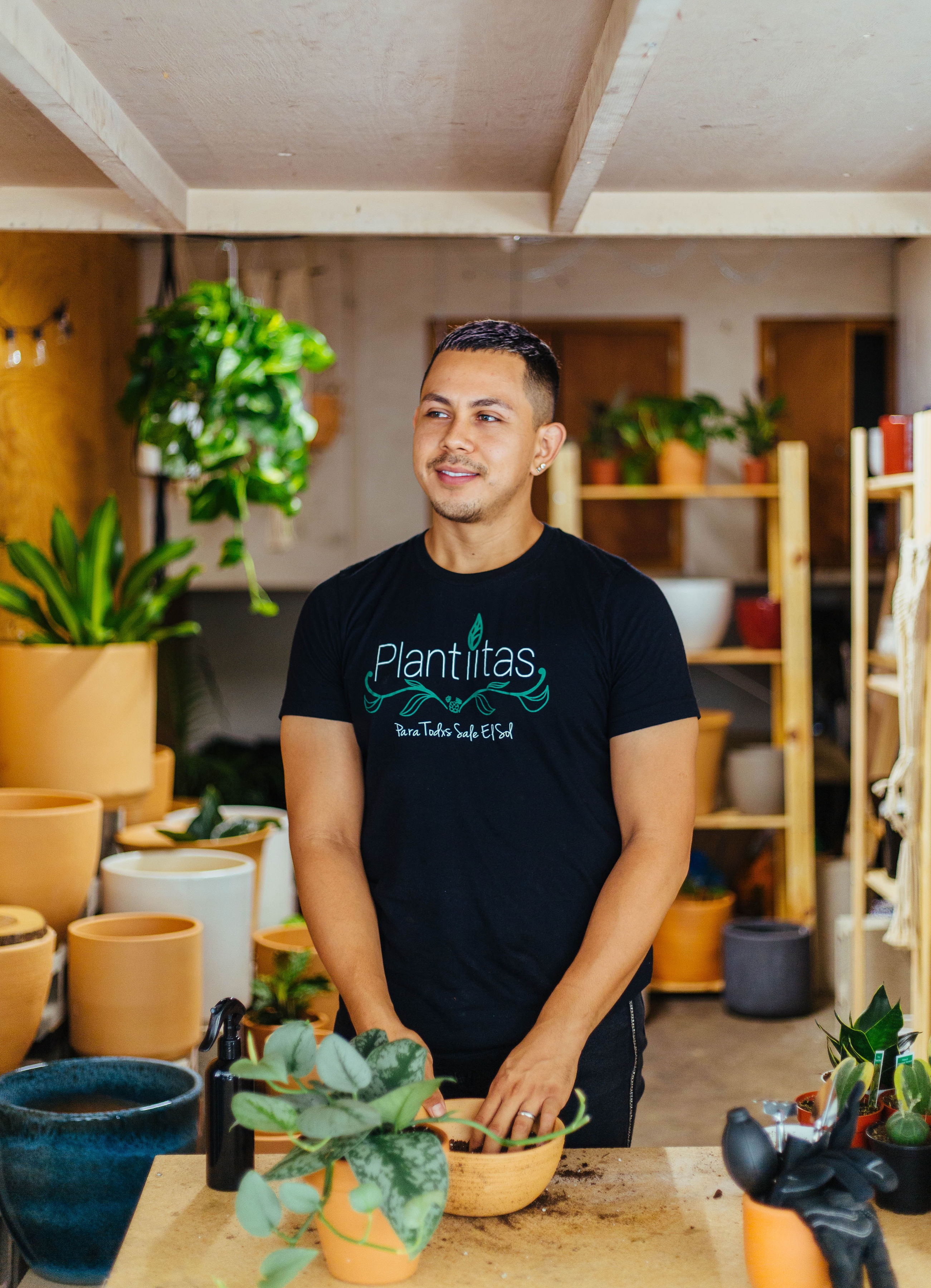
“More than just selling plants, pots and merch, we really want to open up our space to the community to lead group healing sessions surrounded by plants, webinars on repotting and how having plants addresses mental health and the benefits to growing them, and allowing people of color into our space to share their stories in a space surrounded by natural healing and living plantitas,” Diaz says.
In keeping with their goal to uplift the community, they are partnering with local people and organizations. Recently, they donated 10% of weekend sales to Pro Bono ASL, a collective of mostly Black and Brown ASL interpreters in Southern California who provide services at marches and protests in Los Angeles and surrounding areas.
“Plantiitas started as a response to addressing our own mental health and wanting something to help us pass the time, since I was laid off from work and Anthony wasn’t working much either,” Alcaraz shares. “Plantiitas is our little shop and we want to bring good vibes to people as they grow their own plant hobby. It is a mix of our Mexican, American, and queer identities and how a plant shop can be framed from that lived experience. We really care about making plants accessible and do not like the idea of feeling guilty or regret after buying plant babies, therefore, we try to make our prices as friendly and accessible as possible.”
They handpick everything and “rehab” any plants that need a little extra care before they are sold to ensure it doesn’t die when someone takes it home. It’s this level of love and attention that pervades every aspect of their fledgling plant business. Here, the self-proclaimed “plant zaddie queens,” whose favorite houseplants are the golden pothos and silver and satin pothos, share five tips to being the best plant parent.
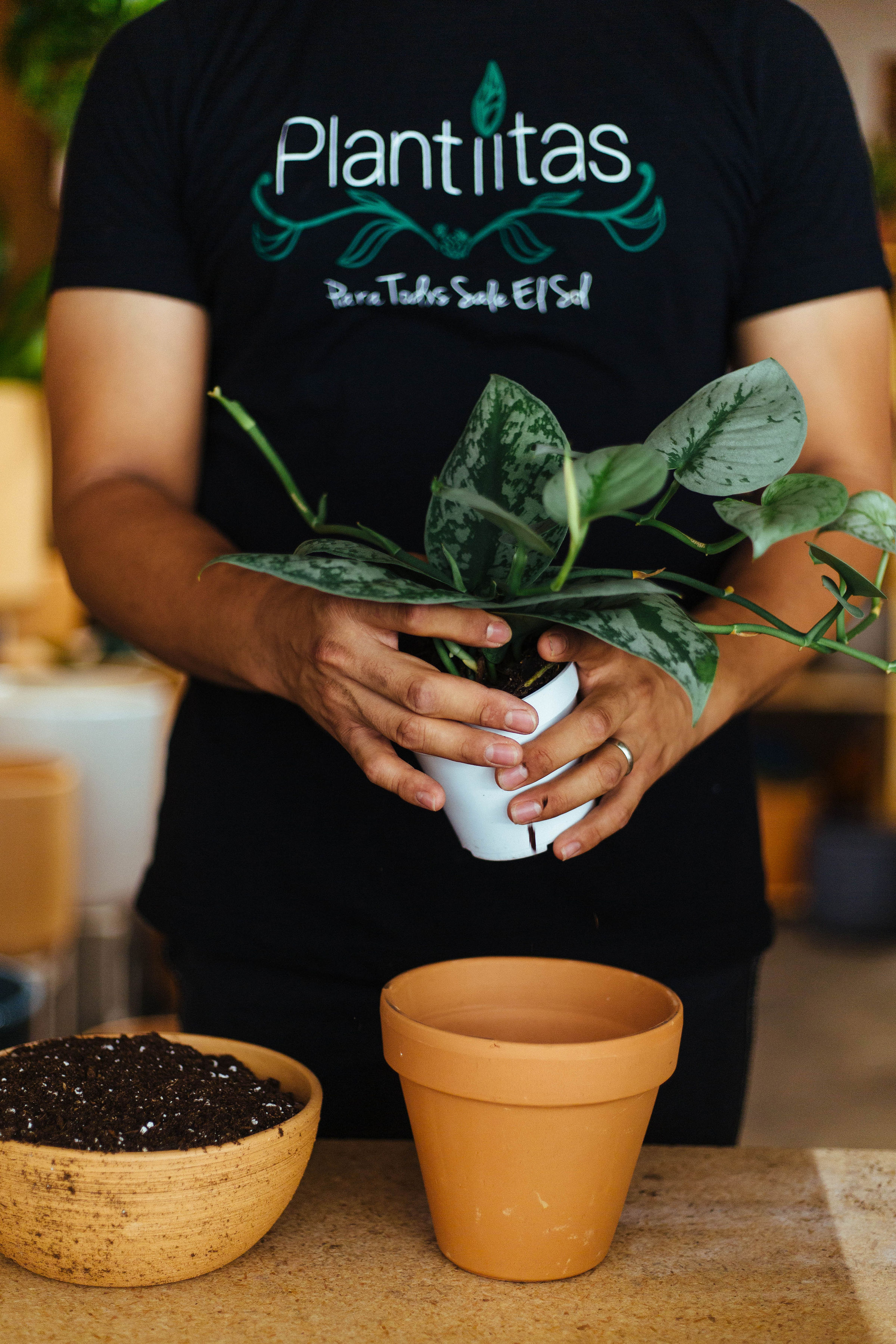
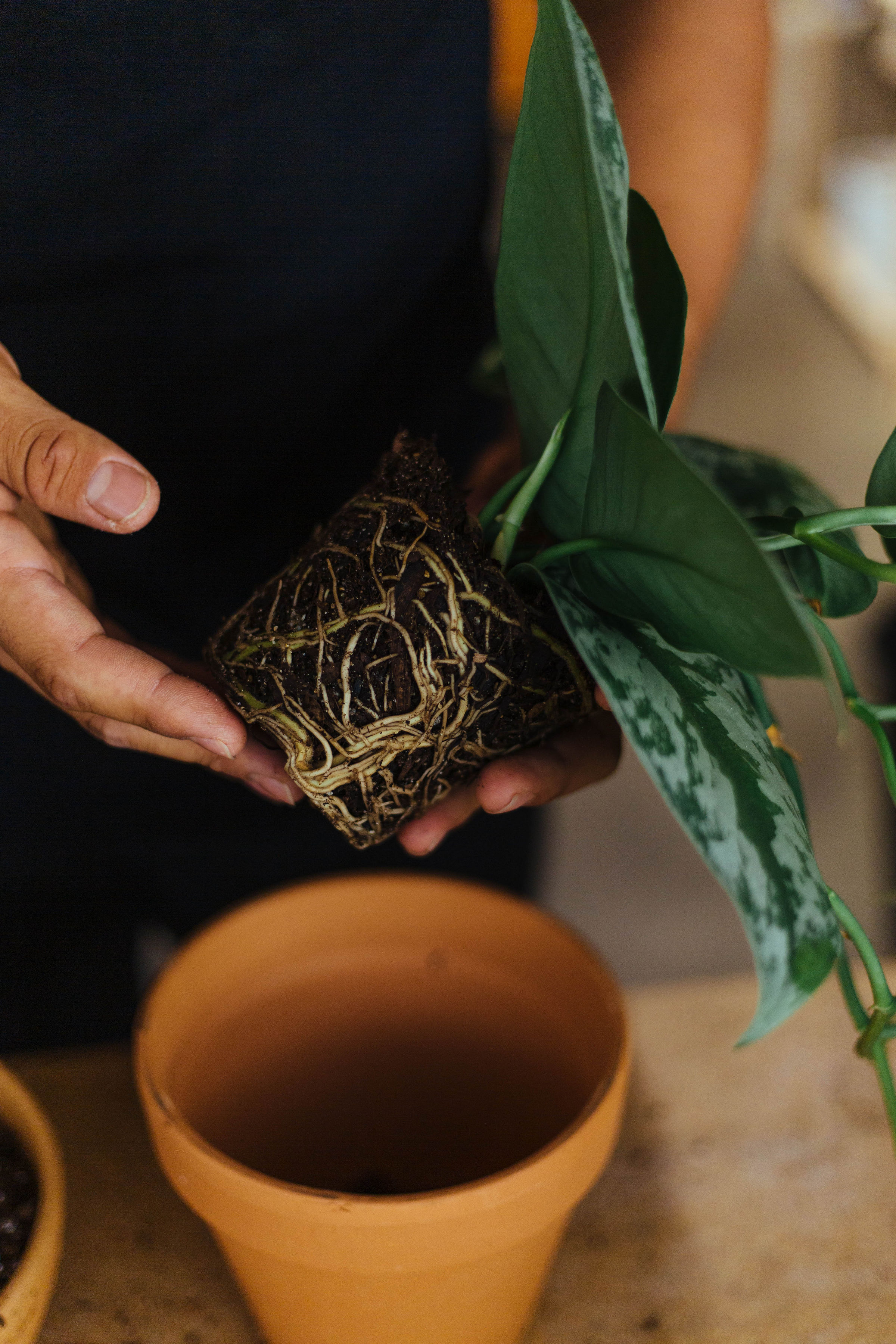
Do your homework.
Diaz: First try to figure out what type of environment the room where you want plants will be; is the room humid? what kind of light does it get – low, medium, high, direct? Is there ventilation in that room? It is best to know what type of environment you can offer to your plant baby to see what plants work best there. Then when you have an idea of what plants are best for your home, go to your local small business to see if they have the plants that match your environment or what are similar plants to the ones you found work best for you. Get to know what your plants’ needs are and lean into your plant community for support. Research your plant!
Adopt a plant that works with your routine.
Alcaraz: Like adopting a pet, you have to give time to your plant baby. If you know you will have limited time in your schedule to take care of your plant baby, find some – because one is simply not enough – that will need less maintenance and care.
Check your plant’s leaves and soil before you buy.
Alcaraz: You should see that there are no bugs or rotting in your plant and its roots. You can squeeze the pot and scratch the surface of the soil to see if anything comes out of it. Bugs are a common problem and they can spread to your other plants easily. The last thing you want is for one cute looking plant to be the demise of your other plant babies at home.
Shop around.
Alcaraz: Most houseplants should not be expensive unless they’re rare. Look around to see what the plant you want is being priced at and the quality that shops are offering. Sometimes paying a little bit more is worth it for what you get. Try to purchase from plant shops and boutiques rather than big box stores although, they get plants pretty cheap and can sometimes offer pretty sweet deals).
Enjoy your plants!
Diaz: Your plants are bringing life to you in your space and environment. Take the time to appreciate their growth, sit with them when you’re having a bad day and communicate with them. They have a way of taking bad energy from you when you let them, so let them be there for you in the subtle way they can.
